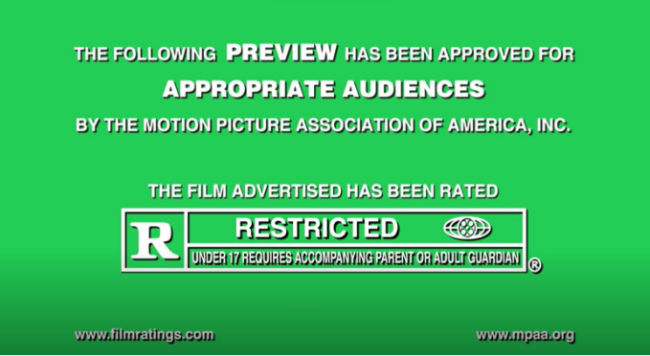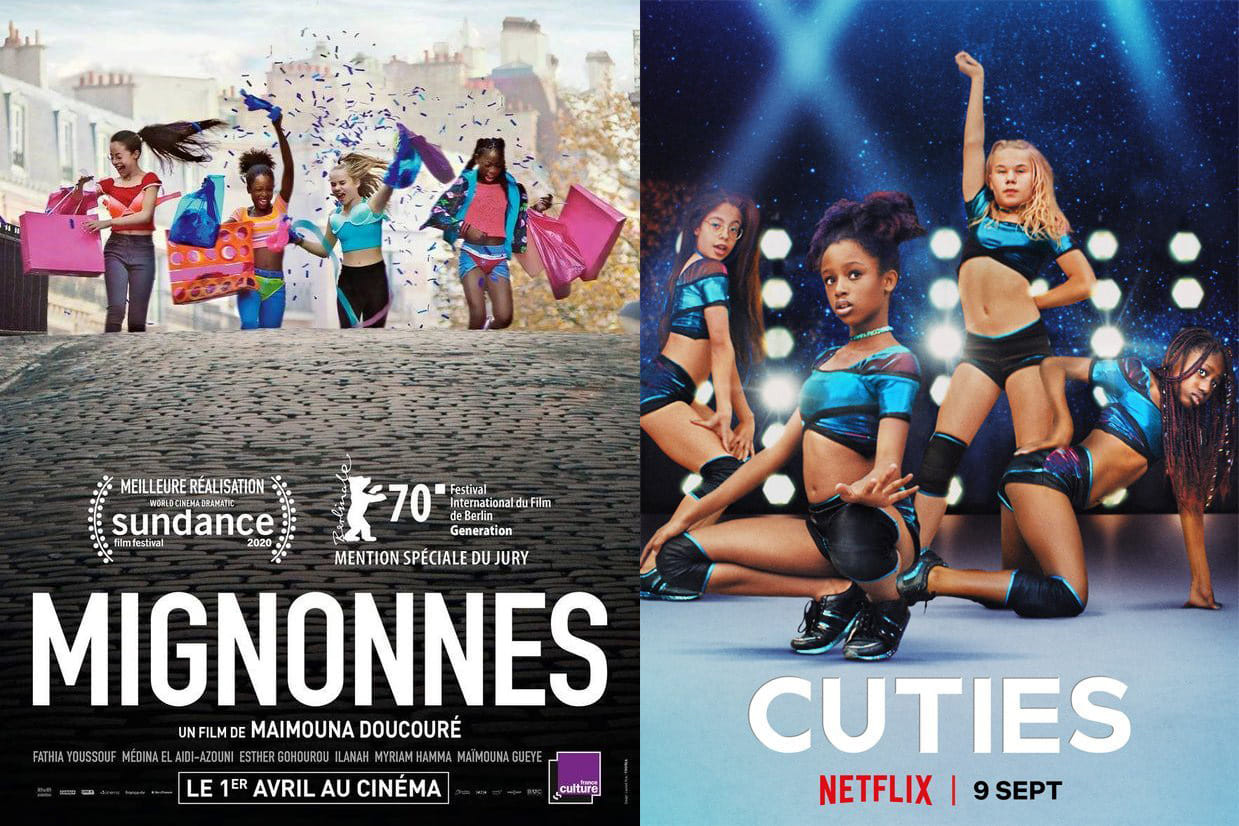
Disclaimer: ThirdHour.org is not political and is not suggesting boycotting any company or group. We invite other opinions from our readership. Please send in Word format to [email protected].
Jonathan Decker is a licensed marriage and family therapist and clinical director of Your Family Expert. He offers online relationship courses to people anywhere, as well as face-to-face and online therapy to persons in several states. Jonathan has presented at Brigham Young University Education Week and at regional conferences in Arizona, Utah, and Nevada. He is married with five children. Contact him here and join his Facebook group for daily Gospel-based relationship tips.
RE: “Cuties” and #cancelnetflix
I say the following to provide context on where I’m coming from, not to boast. I share my opinion as a licensed therapist and as a film critic.
As a couples’ and family therapist, I have a solid understanding of healthy sexuality and healthy relationships. As a student of psychology, I know something about the cognitive development of children and adolescents. I spent four years working with clients who were guilty of sexual offense towards minors. I understand a lot of how their minds work.
As a film critic, I’ve created hundreds of reviews for television and internet outlets, reaching hundreds of thousands of people. I’ve studied cinema as a personal passion my whole life. I have many close friends who work in the film industry. So, while I by no means am THE expert on any of this, I do have some idea of what I’m talking about.
I do not think that director Maïmouna Doucouré meant to exploit children and create borderline child pornography with her film Mignonnes. But I do think that is exactly what happened, and she needs to own a lot of that. But not all of it.
One thing I know about human communication is that there is often a gap between intention and result. Sometimes that gap is a chasm. Our message begins as we want it to in our brains, but may look or sound different when we try to communicate it.
Then it’s out there. Our audience meets our message not with perfect alignment to our intentions, but with their own perceptions, prejudices, hopes, insecurities, and fears. Our message passes through their filters. It can also pass through more deliberate and nefarious attempts to shape, control, or alter it once it leaves our hands.
Stay with me while I make another point, then weave them together. One thing I’ve discovered, in attempting to bridge the gap between my love of movies and my own religious culture that is especially wary of (and sensitive to) popular media, is that the context of the content matters.
For example, consumers worry about the potential for violence in movies to deaden our compassion, making us more aggressive or motivating real-life violence. But when I watched Schindler’s List, the unflinching brutality of the Nazis juxtaposed with Oskar’s growing compassion and courage to act actually motivated me to be a better man. In no way did that portrayal deaden my compassion or make me more aggressive. It broke my heart. It was purposeful. The context of the content mattered.
That said, once a work of art or entertainment leaves the artists’ hands, it’s not theirs anymore. It now interacts with its audience, who will bring their own perceptions, experiences, and emotions to it. It will mean different things to different people. This is called “death of the artist,” in which the work now belongs to the audience. Perhaps not legally, but culturally and personally. Whatever the original intentions of the artist, the art now belongs to the people, who will determine what it means and stands for, no matter how many DVD director’s commentaries attempt to explain it all.

“Death of the artist” is why one person sees Harry Potter as promoting witchcraft and the occult while I see a glorious tale of compassion and coming to love one’s enemies. It’s why one person views The Dark Knight as a celebration of nihilism while I see it as a rejection of the same and a testament to morality when the chips are down. It’s why one person holds The Passion of the Christ in contempt as an anti-Semitic horror story while I see love, selflessness, and redemptive sacrifice on behalf of all people. Art meets us where we are.
In 1994 director Oliver Stone created Natural Born Killers, an ultra-violent tale of serial killers in love. It was meant as a satire, holding a lens up to America’s worship of violence and our idolizing awful people. Stone meant for it to make audiences think and to question their own unhealthy obsessions. But a teenage couple claimed they were inspired by the film to go on a murderous crime spree of their own, the exact opposite of what Stone intended. Art meets us where we are.
I don’t watch the Academy Awards anymore. While I love cinema and the craft of those involved, I’ve zero interest in the cult of celebrity (and I prefer to spend my Sundays differently). But I follow the industry enough to know the winners and what the “big moments” are. I know that Seth McFarlane caused quite a stir while hosting years ago with his song “We Saw Your Boobs,” in which he addressed many famous actresses in the audience and boasted (in song form) about the movies in which he got to see them naked.
Hollywood was shocked. Stunned. They called the performance gross, ugly, tasteless, and sexist. But really, what did they expect? For years, the cliched phrase among actors has been “I’ll do nudity or a sex scene if it’s tasteful and serves the character. It can be graphic, but not gratuitous and it must be essential to the story.” And producers and writers ostensibly support (or drive) this idea, though we know from the #metoo era that sometimes their intentions are more overtly piggish.
Look, we can argue over what is “tasteful” or “essential to the story” all day. I’m not especially prudish. I talk openly with couples about their sex lives every day for work. I know that sexuality is a part of our humanity. But what cannot be denied is that once the work is out there, people will meet it where they are. And where they are is often repugnant.
Halle Berry and Billy Bob Thorton engaged in a graphic love scene for Monster’s Ball, the 2001 film that won her an Oscar. I’ve not seen the movie, but I’ve read about it and spoken to those who’ve seen it. In the context of the film, the moment is about two grieving single parents clinging to each other for comfort and emotional support following the deaths of their children. Its about a man overcoming his racism to love a woman of color. It’s about a woman finding hope and solace in the arms of someone who is growing more tender and compassionate.
Right or wrong, agree or disagree with the inclusion of the scene, that was the intent of the storytellers. I’ll give them the benefit of the doubt on that. I know people who’ve seen the film who say the moment isn’t even sexy in context, because it’s so raw and heartbreaking. I’m sure others would disagree.
But porn sites have taken that scene, without the context of the original film, and thrown it up on their sites to draw in and arouse viewers. It’s not about Berry’s character, her emotional journey, or a powerful performance by an actress. It’s about “we’ve got Halle Berry naked on our site, come check it out.” Death of the artist means that viewers see the art as they want to see it. And many see it in as base, degrading, and objectifying terms as possible.
I don’t know why Hollywood got so upset when McFarlane held up a mirror to show them that their “art” was being consumed as pornography. He was crass and tactless, but he was also calling it like he saw it. Many in Hollywood mean to titillate and arouse in order to sell tickets.
Others who think that they’re merely creating art, which will largely be consumed by the masses with the best of intentions, are naive and kidding themselves. We live in a world with erotic Disney fanfiction, what do you think people will do when the media is actually sensual?
And so on with hundreds (thousands) of movies and shows whose artists may have intended something else in the best of cases, but the art got hijacked. Not to mention the countless others who knew exactly what they were doing and what would happen and made it anyway.
Which brings me to Cuties. I’m willing to believe that first-time director Maïmouna Doucouré was drawing, as she claims, on her own childhood experiences to create a feminist critique of our society’s hypersexualization of women in media, its judgment of women based on their sex appeal, and the negative impacts this all has on young girls who don’t fully understand it all but tap into it for acceptance and attention.
I’ve read reviews from critics who say that, in the context of the film, the scenes of girls showing a lot of skin and twerking onstage are purposefully disturbing, meant as a wake-up call to viewers and a cautionary tale to what we’re doing to our children with our sex-crazed culture. It’s meant to shake us loose, like the violence in Schindler’s List.

A look at the film’s French poster (on the left) and the film’s American poster (on the right) show the difference between the artist’s intent and the sleazy ideas of Netflix’s marketing team. The director was mortified, as critical as anyone else about how the film was marketed, and Netflix issued an apology.
But really, what did Doucouré expect? “Death of the artist” happened even before the film’s release here, as others took her work and perverted it right out of the gate, marketing the film as a pedophile’s wet dream. Netflix courted controversy and it has backfired big time, as subscribers are abandoning ship at an alarming rate.
As for Doucouré, she’s not off the hook. No matter her intentions, she put underage girls in skimpy outfits and had them perform sexualized dance moves. Sure, millions of intellectuals and consumers of cinema-as-art may watch her film and appreciate its message as intended, disturbed as she wanted them to be, and leave completely sexually unaroused.
But millions more will isolate its sensual moments to stoke their perverse lust. They won’t see it as a critique on our sex-obsessed culture any more than those murderous 90’s teens saw Natural Born Killers as a critique on our love of violence. It will merely be fuel for the fire of their criminal, immoral, heinous fantasies. Not all of them will act on these fantasies in the real world. But some will.
I’m not blaming pop culture for human behavior. I don’t think Colombine was the fault of The Matrix. I don’t think The Dark Knight was to blame for that theater shooting. We had murderers, rapists, and pedophiles long before we had movies. But life can imitate art and vice versa.
What makes Doucourés film inexcusable is that she was naive and arrogant enough to think the potential good her art could do was greater than the potential harm.
If Halle Berry and Kate Winslet and Brad Pitt and Michael Fassbender and all of Hollywood choose to get naked and get graphic, then they can do so with full awareness of how their attempts to get people to think and feel with their art can go very sideways. It will be appreciated by some and hijacked by others looking for cheap thrills. They will be objectified, and all the faux shock at Seth McFarlane won’t change that they should know that.
But the underage actresses in Cuties cannot comprehend what their provocative performances are doing to people. They cannot understand that perverts now know who they are and what they look like in very little clothing, bumping and grinding. They cannot predict how this film will affect their lives for years to come. Will they, sometime in their 20’s, turn back and be devastated that they were talked into doing this or allowed to do this? Will they feel that they were used and that they were too young to truly consent?
Maïmouna Doucouré may be a deliberate child pornographer, like a lot of people seem to think. But I don’t think she is. Nevertheless, there is an arrogance and naivety to think that because it’s art and the intentions are good, it must be okay. One can make an argument for that philosophy when consenting adult performers are involved. It’s not okay with children. Ever.
In trying to expose and criticize our oversexualized society, Doucouré contributed to it. As Obi-Wan said to Anakin, “You have become the very thing you sought to destroy.”
I’ve been fine with the existence of everything else on the Netflix platform. Like a public library, they’ve got all sorts of material, and I can choose what’s right for me. The First Temptation of Christ doesn’t bother me, because they also have Young Messiah, Joseph King of Dreams, and God’s Not Dead. I can set ratings filters. I can put into my queue only those films I want to see. Any movie theater, video store, or library will have both films that I treasure and material which I find offensive. No reason to shut any of them down; it’s better to just support the good stuff.
But a film like Cuties, with such potential to harm the innocent, to be exploited by viewers with less-than-pure motives, featuring underage actors who could not fully understand what they were doing, gives me more than pause. And the Netflix ad campaign showed that whatever the filmmaker’s motives, her art is a loaded gun and Netflix has zero problems opening fire.
So yeah, I’m canceling Netflix. Maybe not for the exact same reasons as others. But close enough. It’s a shame. I really loved Stranger Things.





